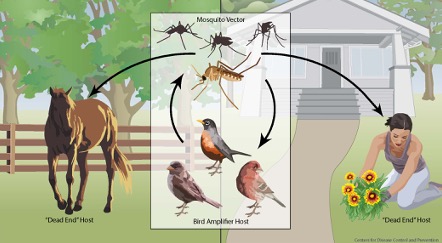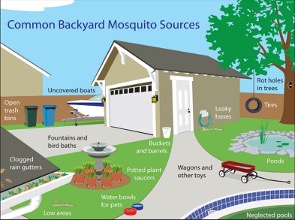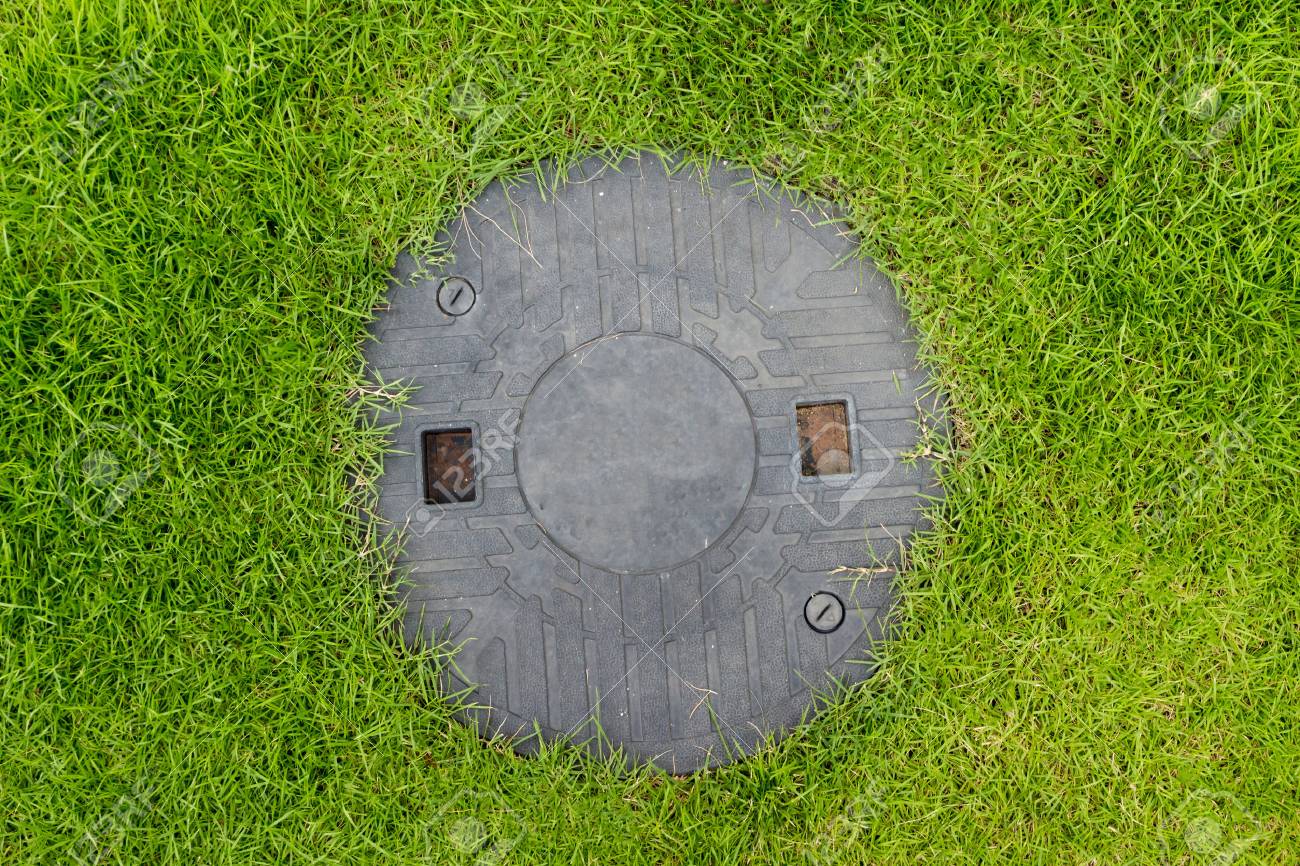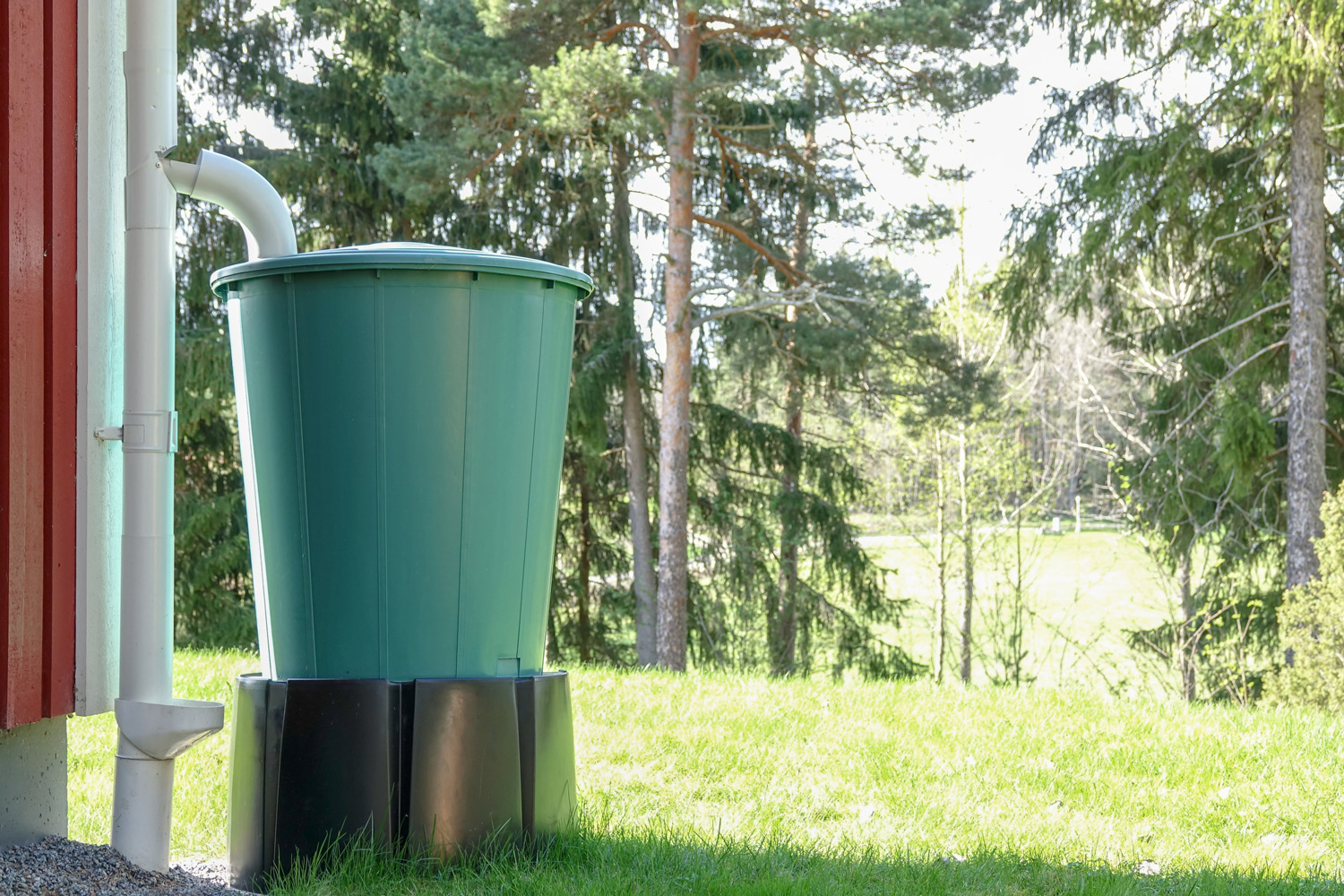Mosquito-borne Disease Control
Fact: Mosquitoes are the world’s deadliest animals. Vector-borne diseases account for more than 17% of all infectious diseases, causing more than 700,000 deaths annually. (CDC)
The NCCD, in cooperation with the Pennsylvania Department of Environmental Protection (PA DEP), administers the Mosquito-borne Disease Control Program.
Our mission is to protect the public health of residents in Columbia, Montour, Northumberland, Snyder, and Union counties by collecting field data and eliminating vectors of mosquito-borne diseases, such as West Nile Virus.
We do this using the principles of Integrated Mosquito Management (IMM).
Integrated Mosquito Management is a science-driven, holistic approach using a combination of:
- Public Education
- Surveillance
- Source Reduction
- Larval Control
- Adult Control
Our staff conduct mosquito surveillance and control activities in our surrounding counties, as well as educate citizens about best management practices to avoid contracting mosquito-borne diseases.
View a larger map of counties NCCD manages and protects with control activities.
What is West Nile Virus?
West Nile Virus is a mosquito-borne disease that can cause encephalitis, or inflammation of the brain, and is typically spread by the bite of a mosquito. West Nile Virus was first detected in North America in 1999 and found in Pennsylvania in 2000. Before that, it had only been found in Africa, Eastern Europe, and West Asia.
In Pennsylvania, West Nile Virus maintains itself in nature by cycling between mosquitoes in the genus Culex and certain species of birds. A mosquito (the vector) bites an uninfected bird (the host), the virus amplifies within the bird, an uninfected mosquito bites the bird and is infected. This cycle compounds itself through summer and fall, increasing the likelihood of someone being bitten by a diseased mosquito.
Humans and horses are considered to be ‘Dead End’ hosts, which means they will not build up high levels of the virus in their bloodstreams and cannot pass the virus onto other biting mosquitoes.
Symptoms of West Nile Virus
Four out of five individuals who contract the virus will not show any symptoms. Those who do exhibit symptoms are considered to have either a mild or severe case. A mild case is characterized by flu-like symptoms, typically only lasts a few days, and generally does not cause long-term health effects. A severe case can cause encephalitis, meningitis, or meningoencephalitis. Recovery can take much longer and can result in permanent damage to the central nervous system or, in some cases, death.
Elderly individuals and those with compromised immune systems are at a greater risk for contracting West Nile Virus and should be taking extra precautions to avoid being bitten by mosquitoes.
What Can I Do to Protect Myself and My Family?
The best defense against West Nile Virus is reducing mosquito habitat on your property.
Try to be aware of potential water-holding containers surrounding your homes such as:
- Empty Buckets
- Wheelbarrows
- Clogged Gutters
- Flowerpots
- Birdbaths
- Plastic Wading Pools
- Tin or Aluminum Cans
- Plastic Bags
- Garbage Cans
- Recycling Bins
- Candy Bar wrappers
- Chip Wrappers
- Special priority should be placed on old tires
In addition to containers, inspect any low-lying areas on your property for standing water regularly. Also, clean and chlorinate swimming pools when they are not in use. Consider using BTI in any body of standing water that cannot be drained.
Wear shoes, socks, long pants, and a long-sleeved shirt when outdoors for long periods, or when mosquitoes are most active. Most mosquitoes are highly active at dusk and dawn.
Consider the use of mosquito repellents. Always follow the instructions on the label. For products containing DEET, a higher percentage means it will last longer. It does not mean that it will work any better.
Mosquitoes can find small areas of untreated skin, so it is important to adequately cover the exposed skin.
Surveillance
There are a few different types of traps that we use to catch mosquitoes. If you see one of these around, please don’t be alarmed, and please do not disturb the trap.
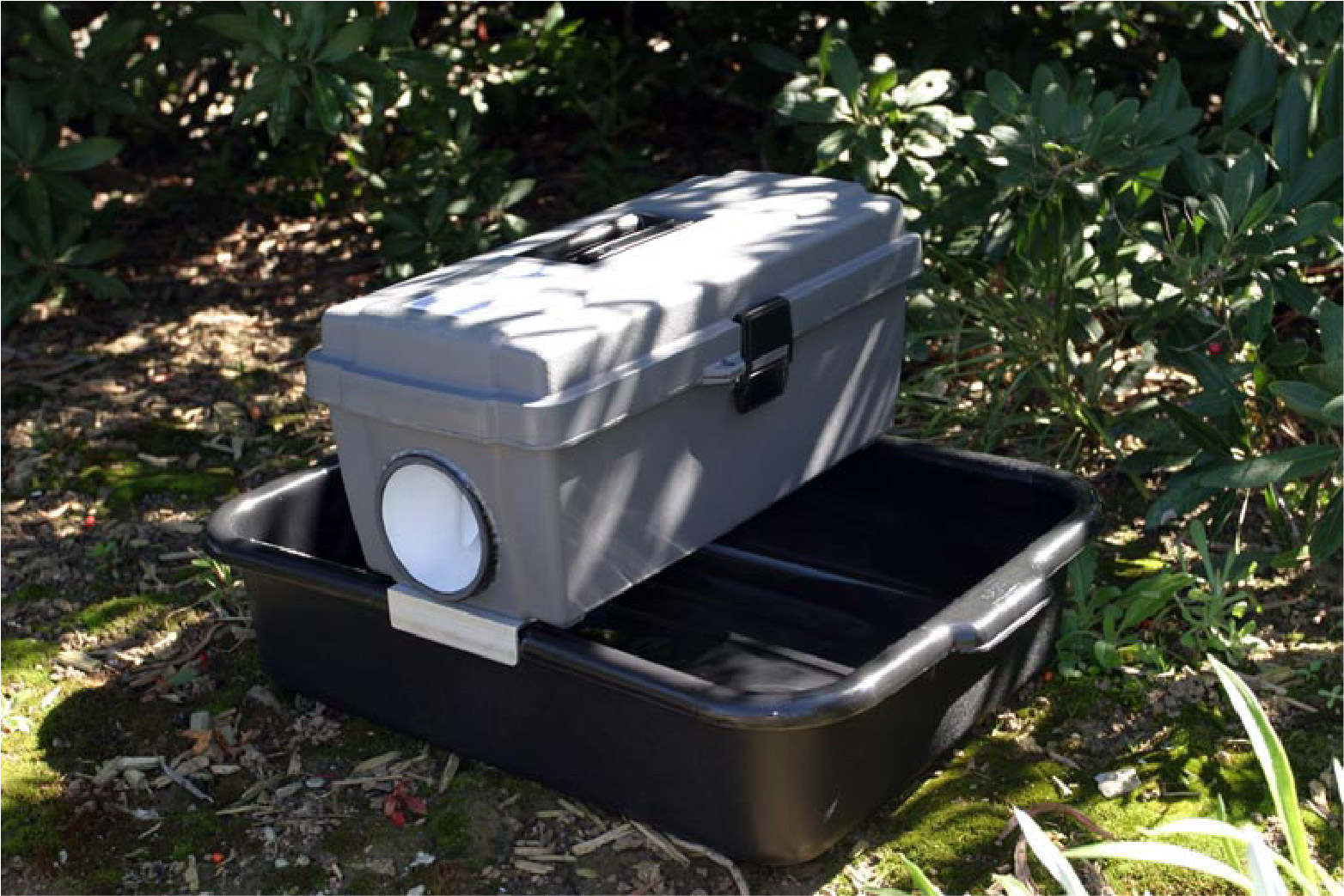
Gravid Trap
We use these traps to monitor for Culex mosquitoes, highly efficient vectors of West Nile Virus.
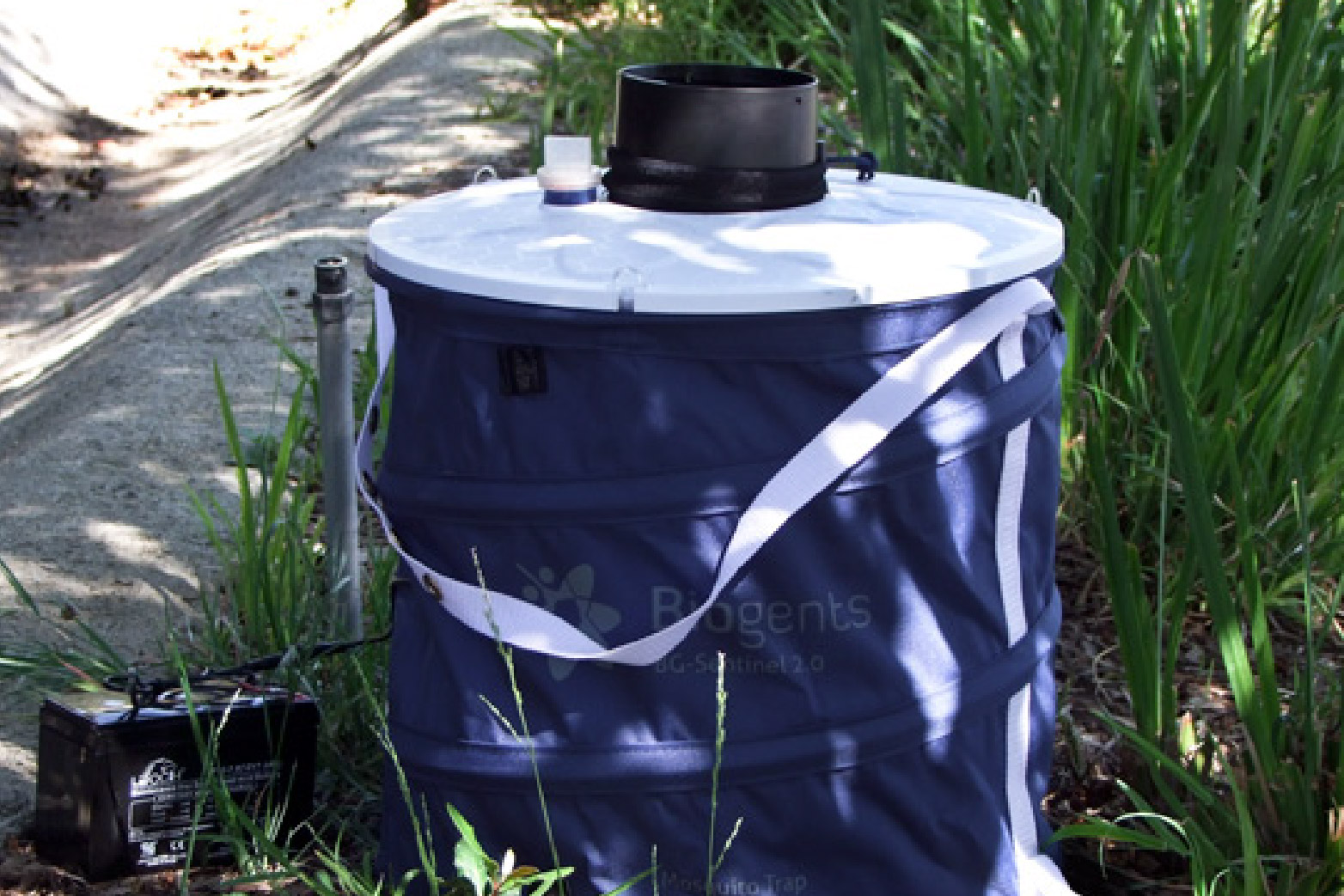
BG-Sentinel Traps
We use this type of trap to monitor ‘host-seeking’ mosquitoes or the ones that haven’t already taken a blood meal and are actively looking to bite you. When responding to biting complaints, this is the type of trap most commonly used.
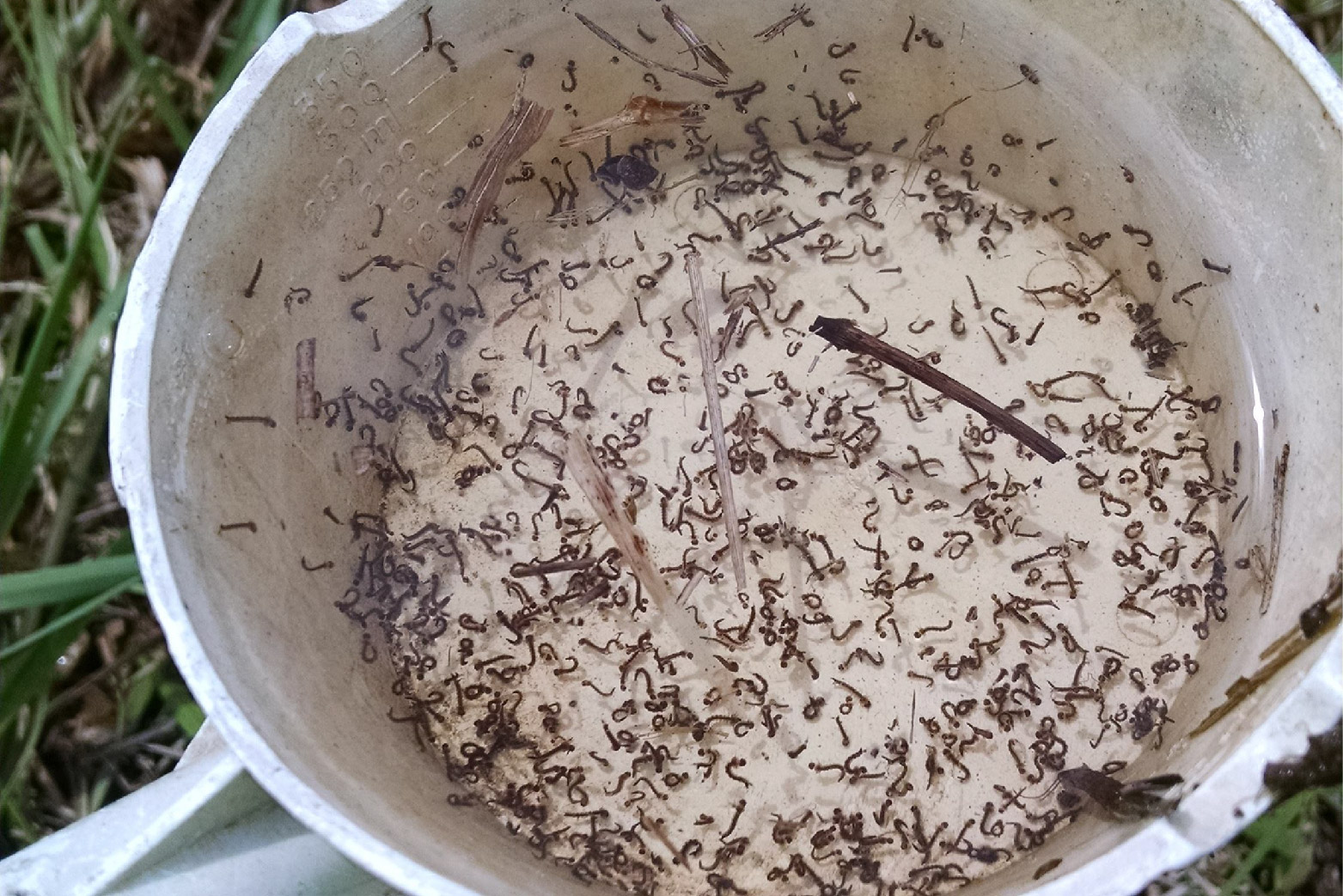
Dipping
We inspect standing water for mosquito larvae and pupae. When water is found to be containing immature mosquitoes, it is addressed by dumping the water or treating the water with a control product.
Mosquito Control
The primary mission of this program is to protect the public from mosquito-borne diseases. When surveillance results show virus activity, additional surveillance in the area is conducted. If virus levels reach unsafe levels, program staff conduct control applications to reduce the number of mosquitoes. When treating large areas, truck-mounted sprayers are used. When treating smaller areas, backpack sprayers are used.
If a resident is dealing with nuisance mosquitoes, the program staff will respond by inspecting the property and nearby area and setting traps. If action thresholds are met, meaning enough mosquitoes are caught to be considered a legitimate nuisance, program staff may conduct nuisance control. This is called a barrier treatment. The perimeter of the property is treated with residual control products, keeping mosquitoes away for several weeks.
Helpful Links
Printable Materials
Mosquito-borne Disease info
- PA DEP West Nile Virus Control Program
- West Nile Virus – Penn State Extension
- West Nile Virus – Centers for Disease Control and Prevention
- Zika Virus – Centers for Disease Control and Prevention
- Mosquito-borne Diseases – American Mosquito Control Association
- Mosquito-borne Diseases – World Health Organization
Questions?
For mosquito complaints or questions, or to submit information about potential mosquito breeding habitats, call Paul Fox at mosquito@nccdpa.org.


